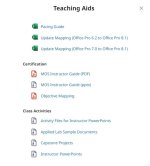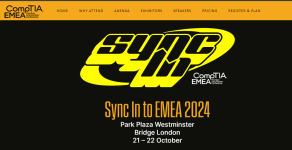Three Mile Island: From Meltdown to Microsoft’s AI Power Play

Three Mile Island unit 1 is coming back online, thanks to Microsoft and AI demand.
Remember Three Mile Island? That nuclear plant south of Harrisburg, Pennsylvania that gave us all a scare back in 1979? Well, it’s making a comeback, and this time it’s got Microsoft muscle (and money) in its corner.
A Brief History Lesson
Three Mile Island was home to two nuclear reactors. In March 1979, Unit 2 suffered a partial meltdown, causing the worst commercial nuclear accident in U.S. history. While Unit 1 kept chugging along, it eventually closed in 2019 due to economic pressures. Producing electricity there was more expensive than other providers using cheaper natural gas.
New Owner, New Expectations
Constellation Energy now owns three Mile Island. That’s not the only nuclear power plant Constellation owns. Here’s a partial list:
- South Texas Project Electric Generating Station (Texas)
- Three Mile Island Nuclear Generating Station (unit 1, Pennsylvania)
- Braidwood Nuclear Generating Station (Illinois)
- Byron Nuclear Generating Station (Illinois)
- Calvert Cliffs Nuclear Power Plant (Maryland)
- Clinton Nuclear Generating Station (Illinois)
- Dresden Generating Station (Illinois)
- Ginna Nuclear Generating Station (New York)
- James A. FitzPatrick Nuclear Power Plant (New York)
- LaSalle County Nuclear Generating Station (Illinois)
- Limerick Nuclear Power Plant (Pennsylvania)
- Nine Mile Point Nuclear Generating Station (New York)
- Peach Bottom Atomic Power Station (Pennsylvania)
- Quad Cities Nuclear Generating Station (Illinois)
- Salem Nuclear Power Plant (New Jersey) (minority owner)
Enter Microsoft / Enter Microsoft Muscle / Enter Microsoft Money (whichever heading you prefer)
Microsoft, in its quest to power the AI revolution, needs electricity. They need electricity to a) power the servers running and supporting CoPilot, and b) provide cooling in the server rooms housing those servers. The servers create heat. The rooms have to stay cool. They need industrial strength air conditioning.
How Much Power Can Three Mile Island Generate?
Microsoft’s deal with Constellation is for a whopping 835 megawatts of electricity. That’s enough to power about 800,000 homes. All this electricity will come from Three Mile Island and go towards powering Microsoft’s AI ambitions. They’re diving headfirst into the AI pool, and they need a lot of energy to keep those servers cool and running.
Summary
AI servers are creating more electricity demand than what our current infrastructure can supply. Expect more stories like this to come, to keep AI alive.
More
AI ain’t so tough. See
https://cybersafetynet.net/category/ai/ to help understand and use Artificial intelligence.






